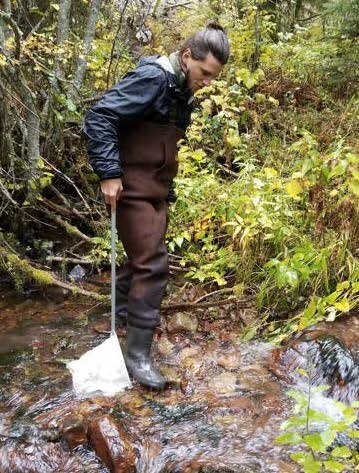james Frakes and Jackson Birrell
Testing thermal tolerance breadth and acclimation ability of aquatic insects
Climate change is rapidly altering water temperatures of Montana’s streams. Understanding the mechanisms that allow local populations of aquatic insects to develop broad thermal tolerance traits via acclimation or adaptation will be key to predicting population persistence. The Climate Variability Hypothesis (CVH) predicts that insects from thermally variable environments should adapt broader thermal tolerance limits and superior acclimation abilities. Here, we perform a rare test of the CVH at local scales. We measure the thermal limits of mayfly (Baetis sp.) and stonefly (Hesperoperla pacifica) nymphs before and after acclimation to different temperature regimes from two nearby, but thermally distinct rivers – a stable spring creek (Big Spring Creek) and a variable snowmelt creek (Judith River), near Lewistown MT.
James Frakes is a master’s student at the University of Montana working on the eco-physiology of aquatic insects with a special focus on stoneflies. Jackson Birrell is a PhD student at the University of Montana studying the eco-physiology of insects. In particular, he’s interested in the mechanisms underlying stream insect distributions and responses to climate change.


